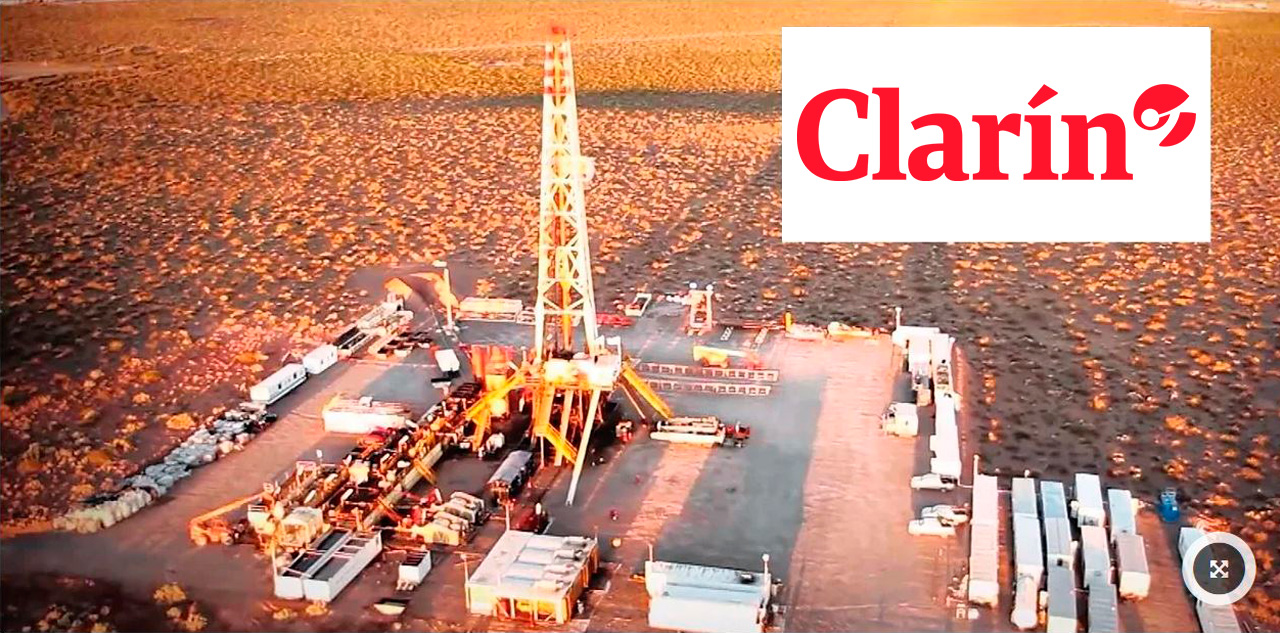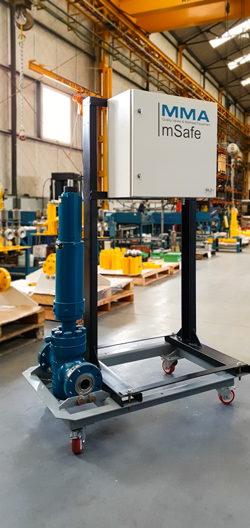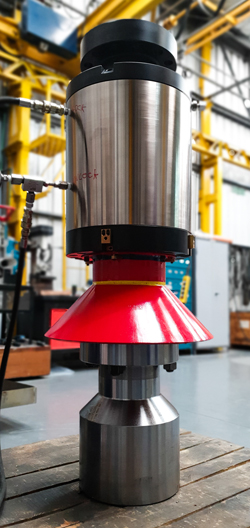There is no analysis of the future of the Argentine economy that can overlook Dead Cow. Beyond the marches and countermarches of the macroeconomy, and the obstacles that this may impose, there are coincidences in that Argentina possesses a treasure buried in the Patagonian desert and that it cannot fail to take advantage of the opportunity.
The unconventional exploitation of hydrocarbons can be measured in the number of wells and fractures. In the last 5 years, there has been a jump from 100 fractures per month to the current 550, with a peak of 712 in February of this year. In the same period the number of wells tripled and the government of Neuquén estimates to reach 1,500 by the end of this year. Vaca Muerta already produces 20% of Argentina's oil and 40% of its gas and there are those who calculate that its current operations cover only 3% of the exploitable surface.
Nearly 50 countries in the world exploit unconventional hydrocarbon resources. There are only 4 that do it on a large scale: United States, Canada, Australia and Argentina. Dead Cow can alleviate the challenges of our country's energy matrix, which depends on hydrocarbons in 86% composed of 53% gas and 33% oil.
Dead Cow appears as a unique opportunity to twist history, even beyond hydrocarbons. A presentation by economist Ricardo Arriazu at the Instituto para el Desarrollo Empresarial Argentino (IDEA) on the macroeconomic impact of Dead Cow ensures that, in the long term, its development:
- It increases the sectorial and total GDP.
- It increases employment in the energy sector and other sectors.
- Improves external accounts.
- Increases provincial and national revenue.
- It has indirect impacts that depend on the importance of the non-tradable sector and on governments' use of additional revenues.
- It causes the internal price of gas to fall, encouraging the production of goods that are intensive in this input.

If Argentina succeeds, says Arriazu, the virtuous circle takes place: country risk falls, investment rises, external restraint is reduced and the sustainable growth rate rises. And he concludes: "A successful development of Dead Cow affects all economic variables and all sectors of Argentina. It is an opportunity, because we have it. It is also a challenge, because we have to prove that we can use it. And it is a necessity: if we don't develop it in Argentina, poverty will continue to grow because we are not going to be able to solve the external problem.
Finally, the former secretaries claim that the country's long-term strategy in this matter "must reconcile fiscal efforts and investment in infrastructure of the Nation, the Provinces and the municipalities, in interaction with the actors of the industry, to reduce costs, give them predictability in time and clear logistical necks tending to facilitate competitive access and the search for opportunities in the world market.

Solutions, technology and human capital
With 90 years of trajectory, Moto Mecánica Argentina S.A. consolidated itself as a strategic supplier of the different companies that operate in Vaca Muerta to extract the shale gas and shale oil from the Neuquén basin. The company, which retains its family character developed over 4 generations, is considered a leader in the segment of wellheads, valves, safety systems, installation services, maintenance and repair.
The industrial plant is located in Tres de Febrero, in Greater Buenos Aires. It also has operating bases in Cipolletti, Comodoro Rivadavia Río Gallegos and Mendoza. It also has a presence in the main markets of Latin America.
"We are constantly looking for opportunities to develop new technologies. The objective is to offer our clients versatile solutions that improve efficiency, reduce costs and operational risk through the application of MMA technologies. Those who operate in areas similar to Dead Cow abroad face similar problems to ours. We believe that the solutions we develop in Argentina can be exported," they say in Moto Mecánica.
In this sense, the company has two developments of special adaptation to the demands of the operators of Dead Cow. The first of these, the mSafe, is the evolution of self-contained hydraulic controllers, which incorporates electronic assistance. It allows operators to safely open and close a locally actuated, remote and automatic valve. It also incorporates online well monitoring functionalities, Partial Stroke Test that allows early failure detection.
The second is mLock, a remote wellhead connection tool that provides safety and efficiency in non-conventional well completion processes. It reduces downtime due to connection and disconnection in the wireline intervention process and, thanks to the remote operation, removes personnel from the unclassified area. Its use results in a time reduction of up to 15 minutes per fracture stage or 30 hours of savings in the operation of a pad.
Along with the technological resources, Moto Mecánica considers essential for its growth the development of a professional team focused on anticipating and solving customer problems. "One of our most important assets is people. In the same way, one of the most important challenges we have in the future is to attract, develop, motivate and retain human resources. We are in an industry that has enormous potential, it is going to be a very attractive pole for young talents in the country," its directors explained.

One of the key challenges presented by the long-term development of Dead Cow is the need to lower the logistical costs for the hydrocarbon operation. In this plan, the construction of the Norpatagonic Train, currently delayed due to complications in the financing plan, emerges as an essential tool for the transportation of cargoes to provide efficiency in the administration of resources and to reactivate the economy of various areas of the region.
The plan announced in the middle of last year establishes a 700-kilometer route to link the Neuquén city of Añelo, in the heart of Vaca Muerta, and the Ingeniero White port, in Bahía Blanca, in the south of the province of Buenos Aires. The investment required is 780 million dollars for a project that allows the creation of 10,000 jobs, between direct and indirect, and foresees a construction period of 4 years.
The North Patagonian Train will have a favorable impact on regional economies. Its operation foresees that the formations go to Patagonia loaded with inputs for the Dead Cow activity (sand, seamless tubes, construction materials, methanol, etc.) and return to the port of Buenos Aires with minerals, fruits and other local productions to facilitate their exit to foreign markets.
At the end of July, the national government took a relevant measure for the reactivation of the railway project. Through an administrative decision of the Agency for the Administration of State Assets (AABE), ceded a building of 87,000 square meters in favor of the management consortium that operates the port of Bahia Blanca in order to build on that land a railroad cargo beach, which will take place near Puerto Galvan. The measure is a step forward for a complex implementation project but with great benefits in the long term.





